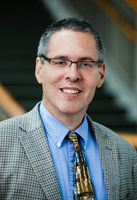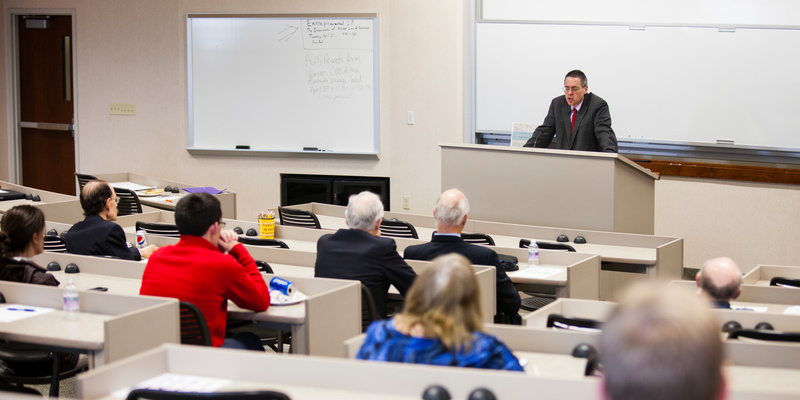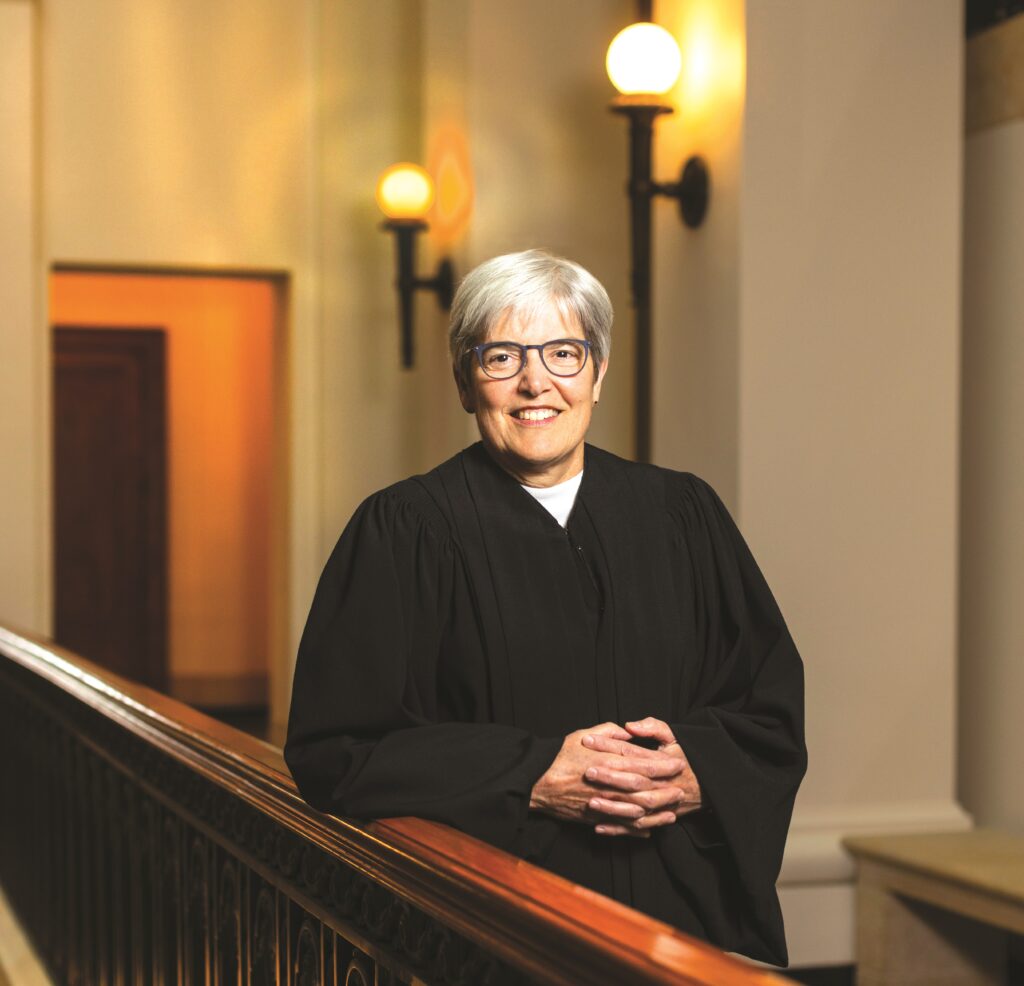A ceaseless drive to understand a changing world and make a positive impact has taken Professor Robert Kahn around the globe, from his childhood in Massachusetts on to Guatemala and throughout Europe. Along his journey he has gathered an impressive array of languages, including German, French, Spanish, Italian, Dutch and (“a little”) Hebrew.
At St. Thomas Law, Kahn excels at connecting with his students. He maintains a calm and encouraging classroom discussion style that is at odds with the aggressively Socratic methods employed throughout many law schools. It’s easy to understand why he is so successful at gently ushering nervous first-years, especially his international LL.M. students, across the threshold into the complex American legal writing and research system.
“Professor Kahn is an intellectual whose humility, quiet manner and thought-provoking questions resonate with students in a profound way,” said Aleesa Jansick ’16. “This inspires deeper engagement with class materials and sparks an unquenchable desire to humbly, but persistently, challenge the status quo.”
Kahn’s passion for advocacy started at an early age. He described an upbringing anchored by one simple value: “A sense that you help people.” Kahn’s father worked as a debtor-side bankruptcy lawyer for 25 years in his own firm. Two of his aunts were social workers. His family imprinted on him at a young age that working hard, being patient and maintaining empathy could literally change lives.
He coupled that desire to be a force for change with a growing urge to focus on global issues. During his gap year before law school, he worked in Guatemala for a nonprofit organization at a time when the country was nearing the end of its 36-year civil war. Although the experience left a strong impression on him, when he left Guatemala he was still unsure of his next direction.
Kahn described himself as “drifting” through his years at New York University School of Law; he had the vague idea that he wanted to teach but remained unmoored. After earning his

School of Law faculty member Rob Kahn poses for a portrait August 10, 2017 in the atrium of the School of Law.
J.D., he worked for a small firm where he provided Social Security and disability law services in Harlem.
While he enjoyed the work, he also was growing restless. He found it increasingly difficult to ignore the major political shifts occurring in Europe. He pointed to events including the fall of the Berlin Wall and the end of communism in Romania as catalysts for his desire to become involved directly in these issues. “It was an exciting moment in time, and I felt I had to go learn about it,” he said.
While doing research in Europe during a Johns Hopkins political science doctoral program, he rediscovered the power of relationship-building and empathy. In the bureaucratic systems of Germany – where it once took him a year to set up a bank account – accessing documents was made easier after building a rapport with those who maintained the information. Only then did he get to dig into dusty boxes that few people had seen, pulled from decades-long storage in attics and basements.
Also during this time, he became more focused on free speech, hate speech, and how civil- and common-law legal systems affected Holocaust denial prosecution in Europe. He described his studies there as being in an “amazing intellectual environment, which challenged ideas I had held for years.” His dissertation, “Holocaust Denial and the Law: A Comparative Study,” became his first book, published in 2004.
After teaching legal writing at Brooklyn Law School for two years, Kahn came to the University of St. Thomas School of Law in 2007. “It was a different atmosphere. Besides the size of the classes and the freedom to focus on scholarship, I was impressed by the dedication of the faculty, and their concern for human dignity and the actual lives of people,” Kahn said.
At St. Thomas, Kahn pushes students to think in new ways. His courses have included such topics as Islam and civil liberties, privacy law, and hate speech. His annual course is Lawyering Skills, which he brings to a fresh batch of LL.M. and first-year students each year, watching them gain the tools necessary to become successful legal writers and researchers. Kahn is dedicated to making his students feel supported and enjoys watching LL.M. students adjust and grow as they become more confident in their language skills.
Because his students come from a wide range of countries and cultures, he ensures his classes reflect the best qualities he’d like to see in the world. He prefers letting discussion develop naturally rather than what he terms, “the European model of talking at students.” Respect and avoiding broad generalizations top his list of discussion rules. He values letting little things go and encourages students to put things in their own words.
He’s well-known for giving highly detailed feedback on papers, working with a student until their paper reflects their own thoughts, and offering additional help on those first nerve-racking resumes and cover letters. For Kahn’s students, his critical feedback is one of the most valuable tools they receive. It’s a teaching method that Kahn uses with intention, because, as he says, “When you get that feedback, and when it’s done well, it really makes a difference.”
He explains that one of his guiding principles is patience. He exercises patience not only in his classroom, but in his gradebook. As a researcher he understands that both solutions and brilliant legal minds rarely appear overnight. He’s willing to work with students for as long as it takes for them to understand the material, especially those LL.M. students for whom English may not be their first language.
Kahn continues to be excited by a changing world. He is highly sought-after worldwide for his expertise in the areas of comparative hate speech regulation. With rapidly developing technology, he sees the trends of social media regulation, along with privacy concerns, here and abroad, as an area overdue for discussion. As he has demonstrated throughout his career, it’s a safe bet that he will continue his scholarly journey, bringing his students along with him while challenging them to find their own answers.
Read more from St. Thomas Lawyer.





